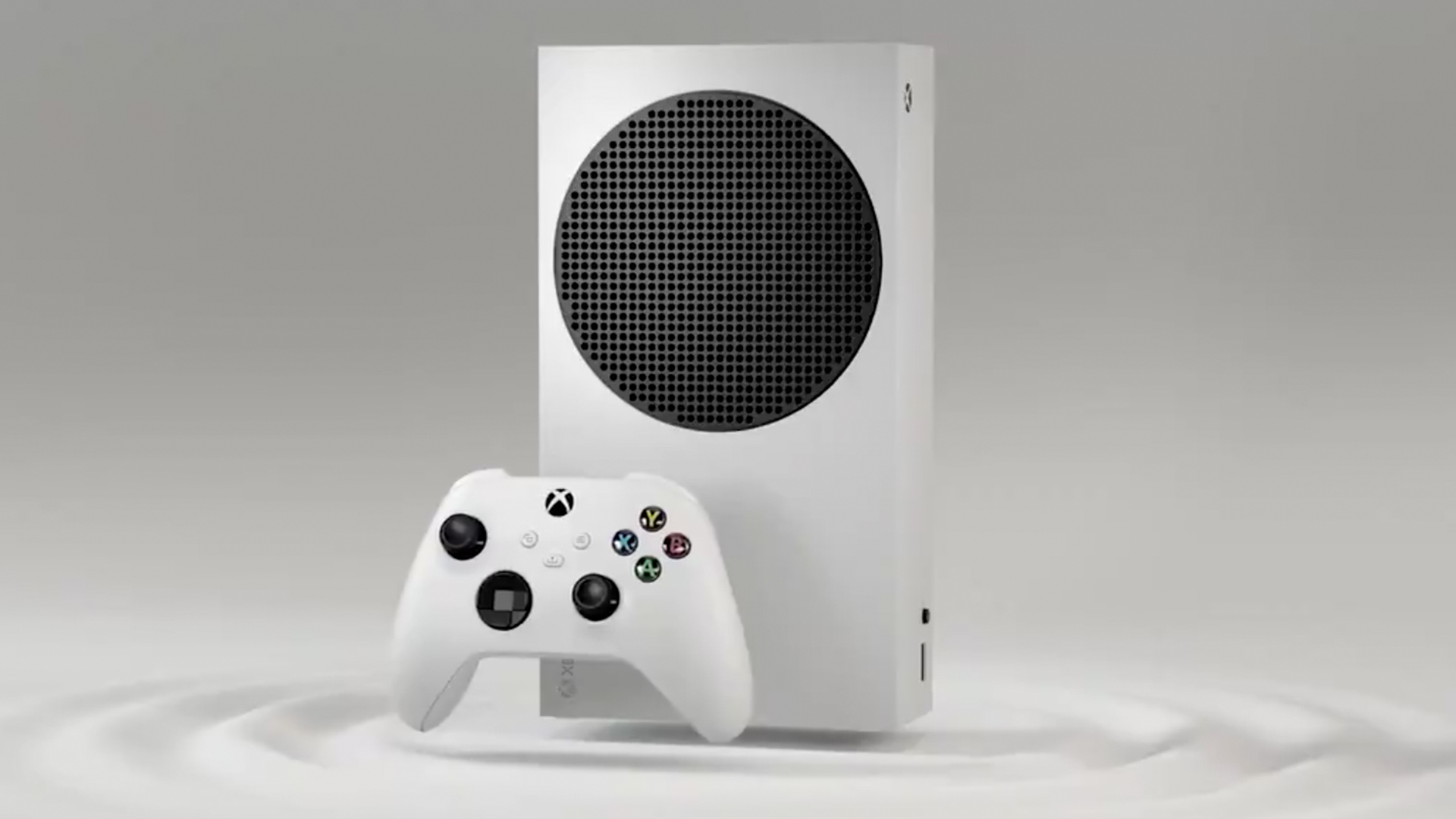
The Xbox Series S is a great way to get the benefits of the next-generation of console gaming, but without the need to upgrade to a 4K TV. It launched in November 2020 alongside the Xbox Series X, with the aim of offering improvements to performance and graphics, and a decrease in load times but without the 4K graphics.
The Xbox Series S is targeting gaming at 1440p and at 60 frames per second, which draws quite the contrast with the powerful Xbox Series X. Still, the Xbox Series S is a great way for players to reconnect with the Xbox ecosystem and the best place to play for those who are looking to upgrade from the Xbox One this year without breaking the budget.
Below you'll find everything you need to know about the Xbox Series S, including details on its design, price, release date, and specs.
Xbox Series S design
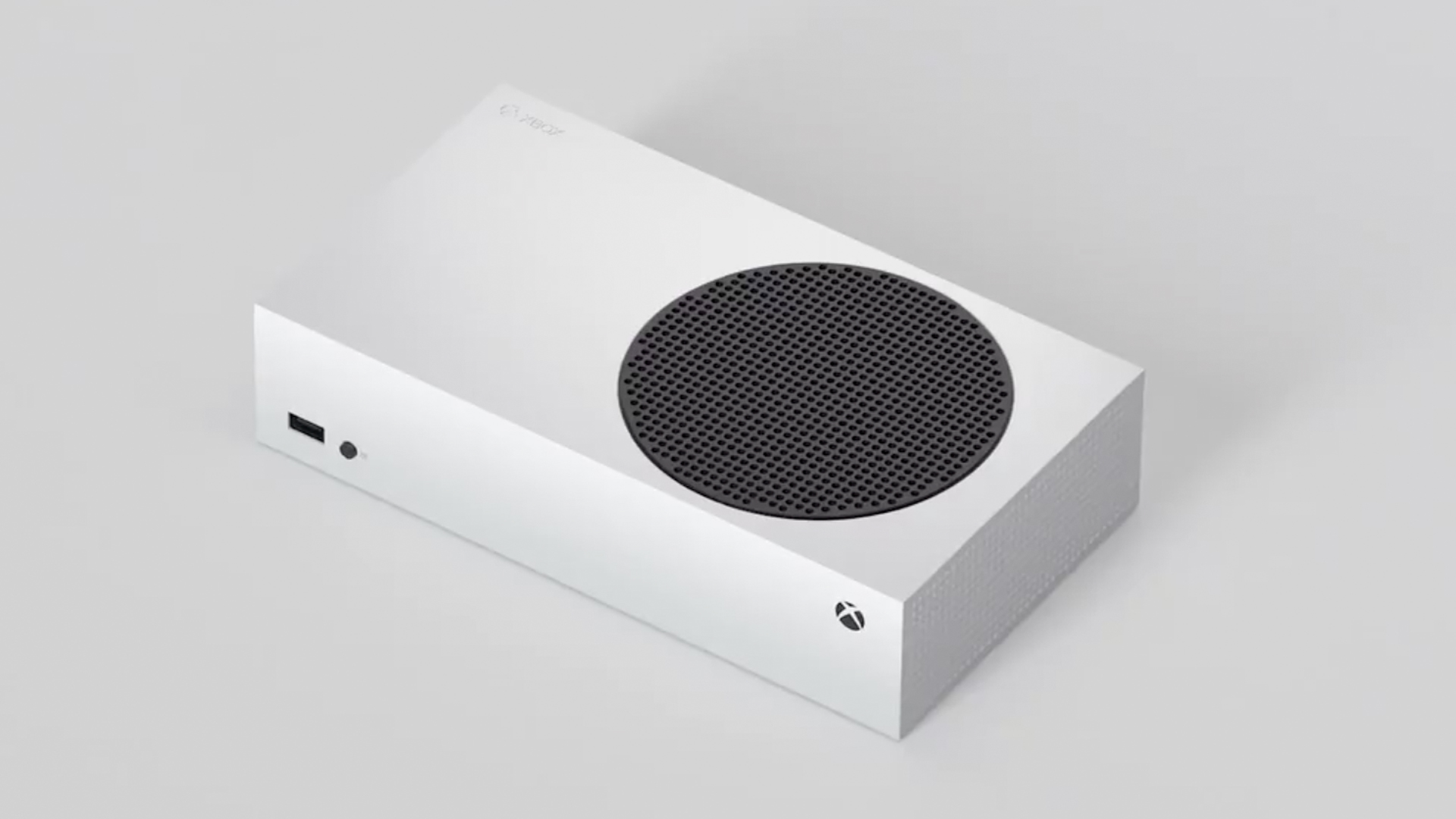
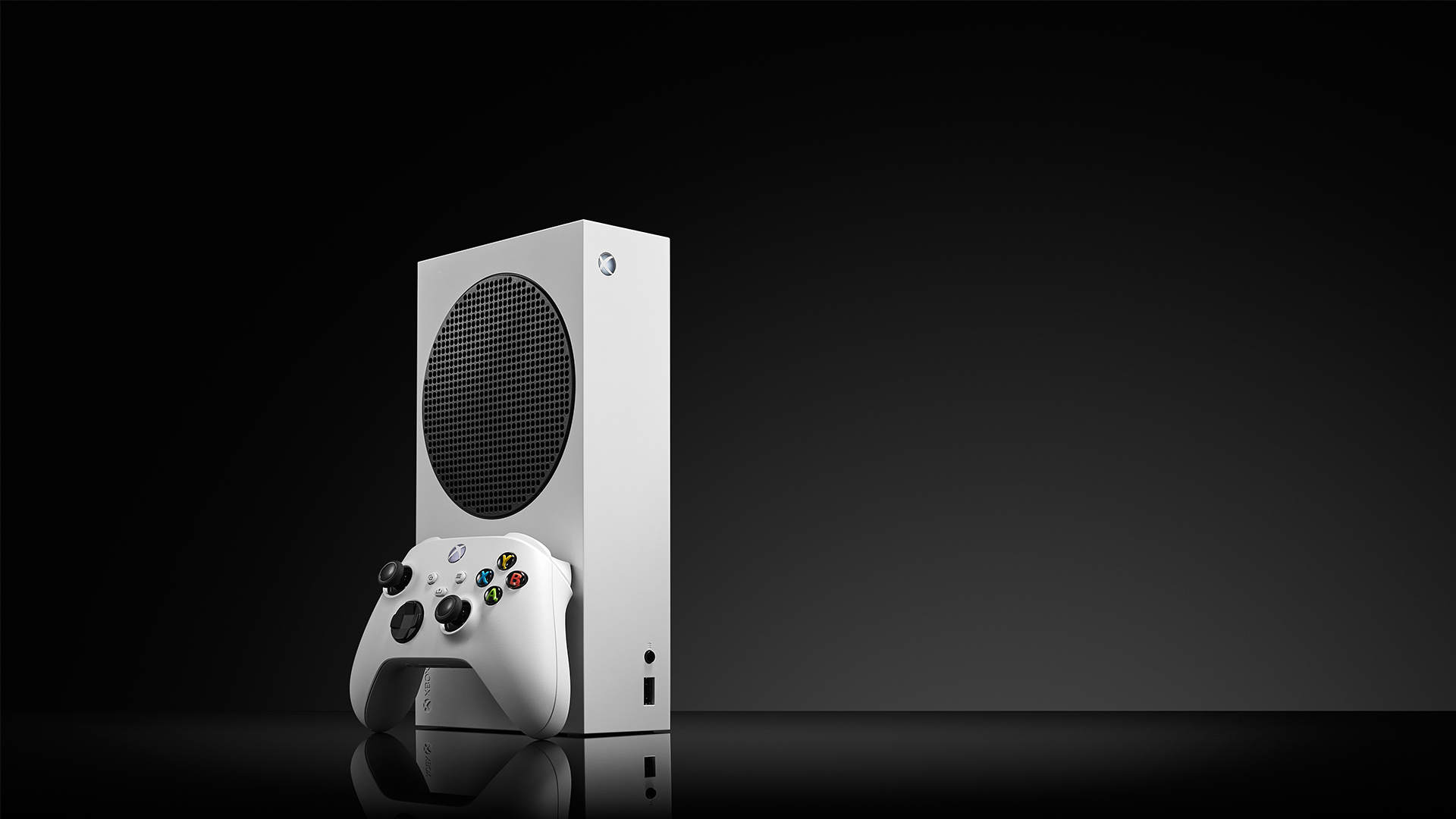
Xbox Series S review: We've had our hands on the Xbox Series S for a couple of weeks now and we're finally ready to offer our final verdict on the hardware, the software, controller, user experience, and more.
The Xbox Series S is designed to be a cheap entry point into the next generation. It's part of the new, next-gen 'Xbox' series of consoles, arriving as a cousin to the powerful Xbox Series X. While the Xbox Series X boasts support of 4K resolutions at 120 frames-per-second, and a state-of-the-art SSD drive to improve everything from loading times to game performance, the Xbox Series S is a more modest unit.
The Xbox Series S boasts a smaller form-factor than the Xbox Series X (it's 60% smaller, to be precise), arrives at a more agreeable $299 / £249 price point, and it has dropped the disk drive entirely. This all-digital machine comes in "Robot White" and looks an awful lot like the Xbox One X (which was discontinued in July 2020), albeit with a massive cooling vent on top of the unit. The Xbox Series S comes equipped with a USB-A port on the front of it, and can be positioned upright and lying down.
Xbox Series S price
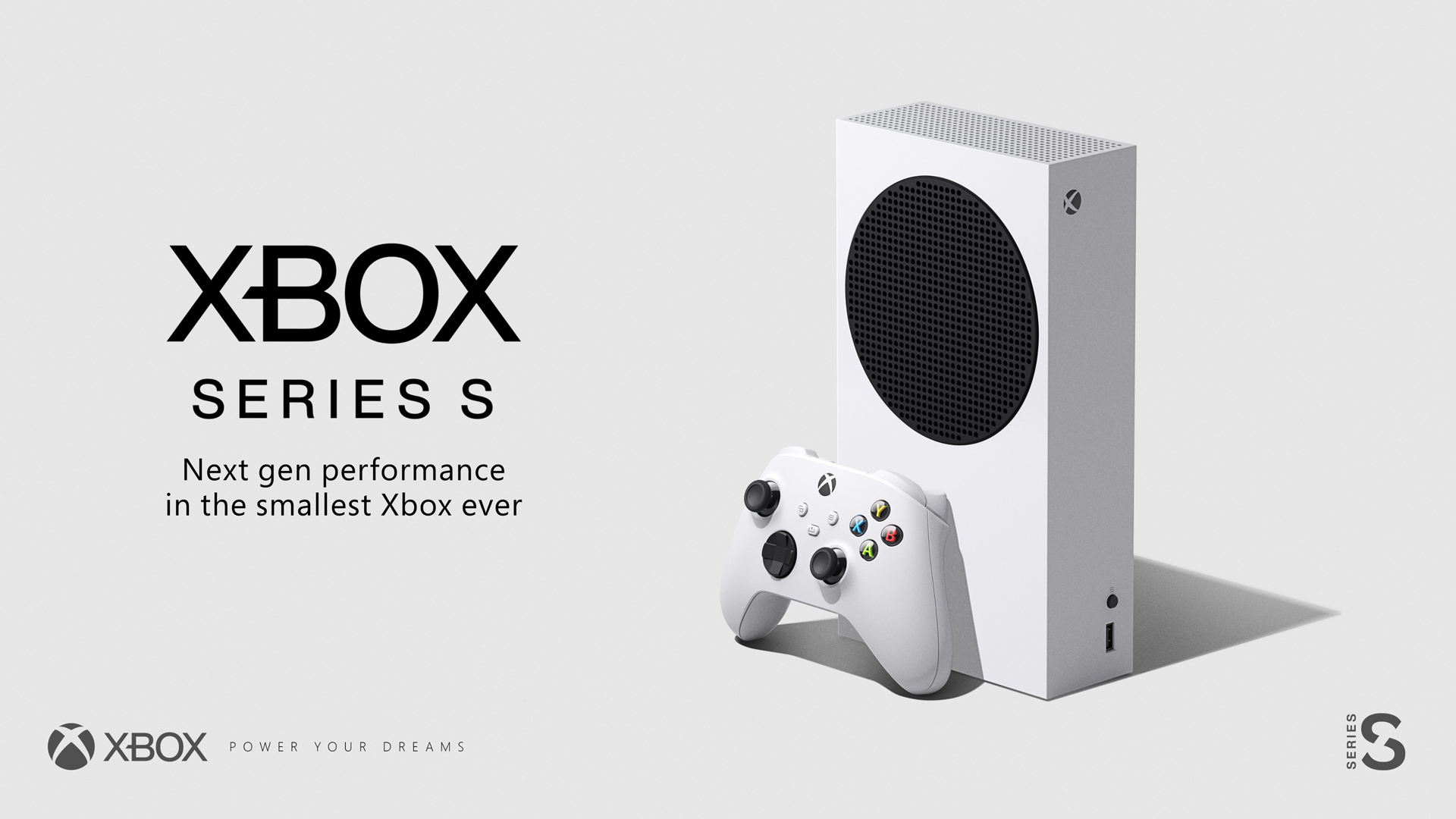
The Xbox Series S price is $299 / £249, making it the cheapest way to get access to next-gen technology.
With the Xbox Series X coming in at $499 / £450, that $200 / £200 price differential reflects the difference in raw GPU power and utility. If you want a future-proofed and top-of-the-line next-gen experience, then you'll want to invest in an Xbox Series X. If you aren't all that bothered about 4K – and have no plans to buy a 4K TV in the near future – but still want all the benefits of a next-gen system, then you'll want to invest in an Xbox Series S instead.
Sign up to the GamesRadar+ Newsletter
Weekly digests, tales from the communities you love, and more
You can also get an Xbox One S via a new initiative named 'Xbox All Access' in some territories. This finance service will let you get an Xbox Series S and 24 months of Xbox Game Pass Ultimate for just $24.99 / £20.99 a month for 24 months.
Xbox Series S specs and features
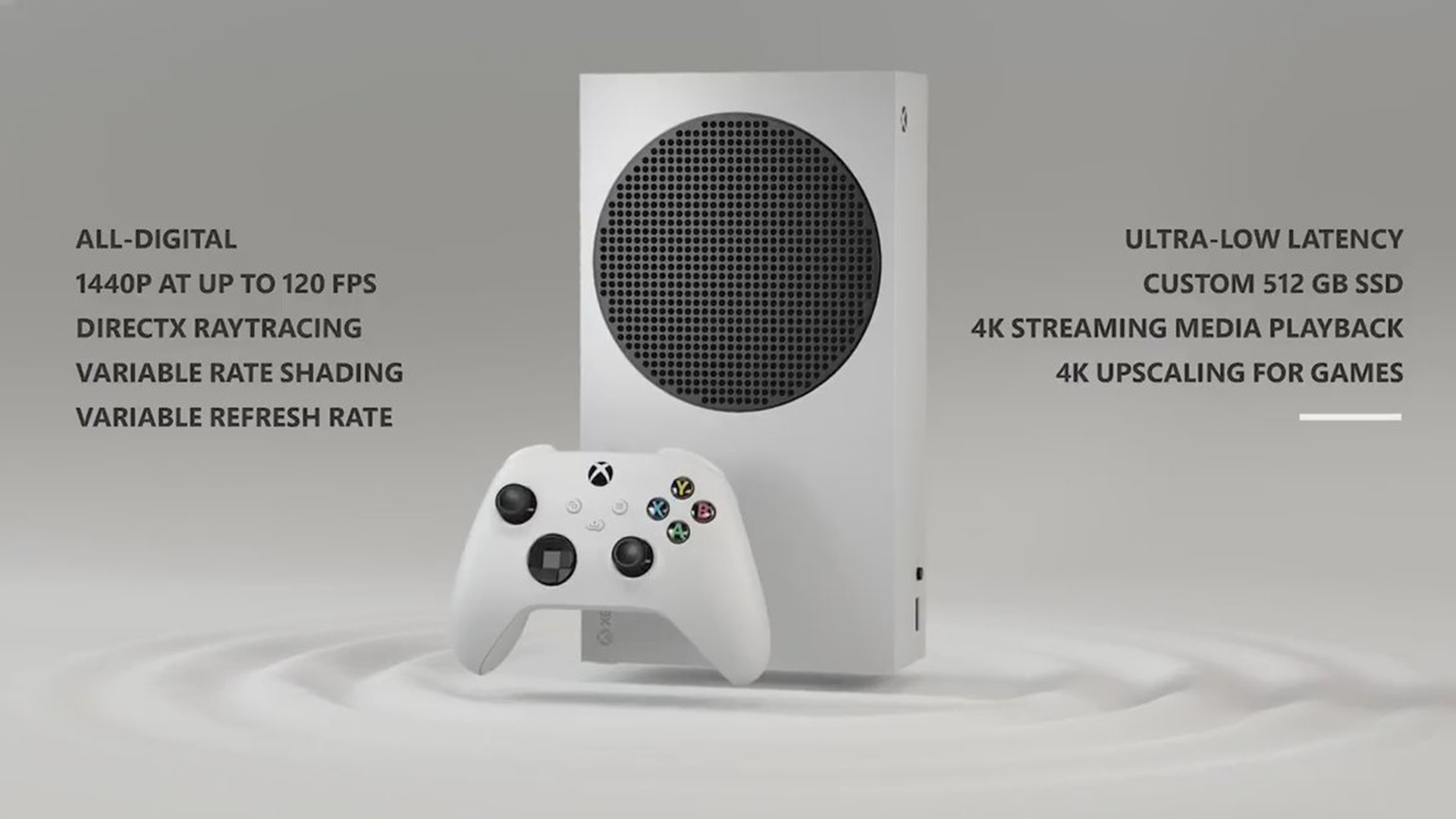
The Xbox Series S might be 60% smaller than the Xbox Series X, but it isn't only 60% as powerful. The system has an impressive amount of tech packed into that tiny box, delivers "the same next-generation speed and performance that defines Xbox Series X" says Microsoft, just at 1440p 60fps rather than 4K 120fps maximums.
The Xbox Series S is basically designed to offer all of the next-gen benefits of the Xbox Series X, albeit at a lower resolution. It has no disk-drive but it does come equipped with a custom NVME 512GB SSD powered by Xbox Velocity Architecture. That means that Xbox Series S owners can take advantage of many of the next-gen features it has engineered for the Xbox Series X, including variable-rate shading and variable refresh rates, ultra-low latency, and DirectX Ray-tracing, not to mention "incredibly fast load times" and "seamless game switching".
Basically, the biggest difference is in the resolution. This is a console for those that aren't interested in 4K or in upgrading to a 4K television just yet. Xbox Series S delivers 3x the GPU performance over that of an Xbox One, designed to run at 1440p resolution at 60 frames-per second, although it will also support games that run at 120fps. The Xbox Series S does support 4K streaming media playback and 4K upscaling for games though (just in case you do decide to plug it into a 4K TV in the future).
Xbox Series S games

When it comes to Xbox Series S games, you should think of this thing as a Game Pass Ultimate machine. The smaller box has the same support and functionality that the Xbox Series X does, meaning it plays all Xbox One games (aside from those outliers on Kinect), as well as all supported Xbox 360 and original Xbox games. The Xbox Series S does, of course, support all upcoming Xbox Series X games, including the likes of Halo Infinite, Fable 4, and Everwild.
Given there's no disk drive, the focus here is on digital titles, but really on Microsoft's Game Pass, Project xCloud, and Xbox Live. Xbox Game Pass Ultimate is an attractive subscription service – especially now that EA Play membership and Bethesda titles are being bundled into the package – offering a library of over 100 games for download, and its sync up with PC players and Android users (via xCloud, which is also part of a Game Pass Ultimate subscription) means it's only likely to grow and improve over time.
Xbox Series S release date

The Xbox Series S launched on November 10, 2020, the same day at the Xbox Series X.

Josh West is the Editor-in-Chief of GamesRadar+. He has over 15 years experience in online and print journalism, and holds a BA (Hons) in Journalism and Feature Writing. Prior to starting his current position, Josh has served as GR+'s Features Editor and Deputy Editor of games™ magazine, and has freelanced for numerous publications including 3D Artist, Edge magazine, iCreate, Metal Hammer, Play, Retro Gamer, and SFX. Additionally, he has appeared on the BBC and ITV to provide expert comment, written for Scholastic books, edited a book for Hachette, and worked as the Assistant Producer of the Future Games Show. In his spare time, Josh likes to play bass guitar and video games. Years ago, he was in a few movies and TV shows that you've definitely seen but will never be able to spot him in.


